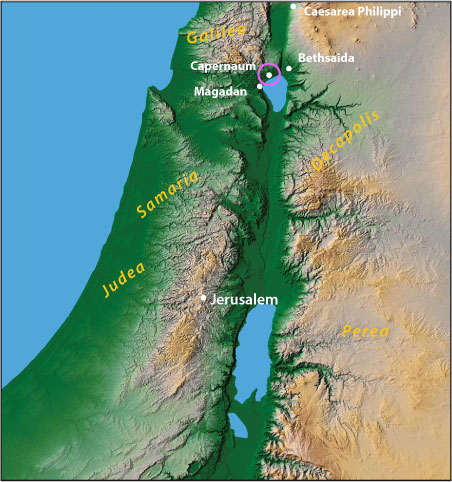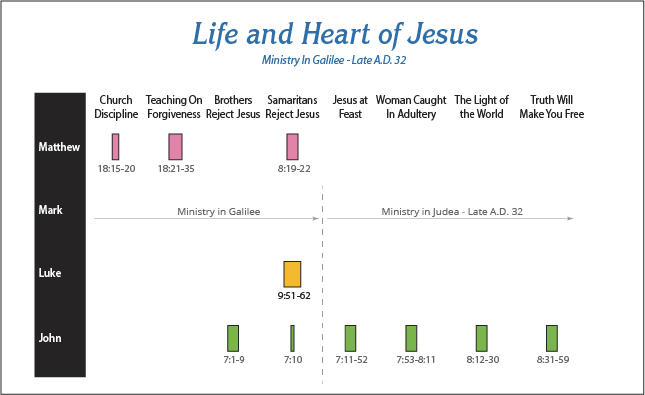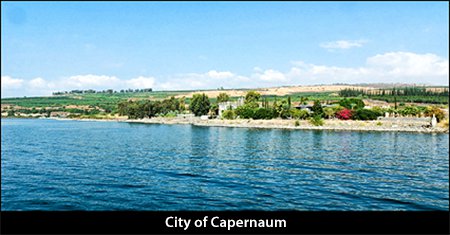Our study is about a conflict that occurred between Jesus and His brothers. Sibling rivalry is not new. Every parent has experienced it if they have more than one child. The children have experienced it too! It is common to see children fight over toys and possessions. Teaching children to be at peace with one another and to obey their parents is a frequent trauma. Some children submit while others scream and display tantrums in order to win. Unfortunately, some children never mature and when adults will still compete with their siblings. In some sad cases immature parents contribute to sibling rivalry by playing favorites such as Jacob did with his son Joseph. All of Joseph’s brothers knew that Joseph was preferred, especially when dad gave him the multicolored tunic (Genesis 37:3-4). Most likely Jesus’ brothers knew He was extraordinarily special. Just imagine living with a brother who never disobeyed or did anything wrong – never sinned. Also imagine the jealousy of the brothers due to the great crowds of people who followed Him.
Fall of A.D. 32
The conflict between Jesus and His brothers is described in John 7:2-10. Our study is about this event. Chronologically, it follows the parable about forgiveness that is recorded in Matthew 18:23-35. We are able to determine this by carefully comparing the four gospels. In John 7:2-9 Jesus is still in the city of Capernaum in the region of Galilee and the Feast of the Booths is near.
Now the feast of the Jews, the Feast of Booths, was near. John 7:2 (NASB)
This feast was one of seven religious feasts that the Jews celebrated and still do celebrate today. God established the seven feasts in Leviticus 23 and 25. The feasts are: The Passover Feast,[1] Feast of Unleavened Bread,[2] Feast of First Fruits,[3] Feast of Weeks,[4] Feast of Trumpets,[5] Day of Atonement[6] and the Feast of Booths. The Feast of Booths[7] or Feast of Tabernacles occurs two weeks after the Day of Atonement on the fifteenth day in the seventh month or Tishri 15, (Leviticus 23:34). This means the Feast of Booths occurred in either September or October (Fall of A.D. 32), and lasted for seven days (Lev. 23:42-43).
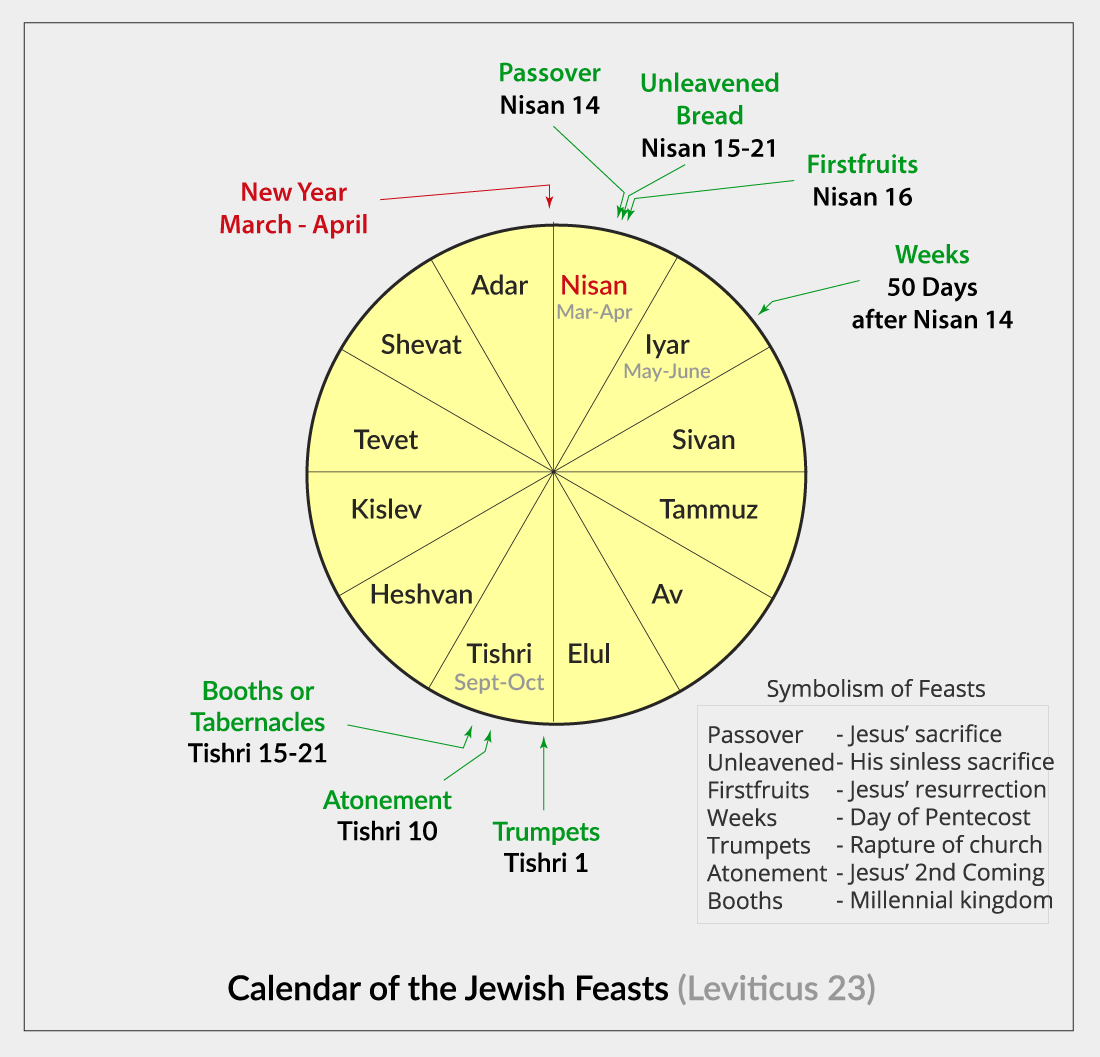
The feast occurred at the end of the harvest season. It was a time of rejoicing and celebration (Deuteronomy 16:13-17). The feast was one of only two feasts that lasted for seven days. Every Jewish male was required to attend this feast. The feast also symbolizes the glories and joy that will occur in the future during the Messiah’s earthly, literal, one thousand year kingdom. During the Messiah’s kingdom, peace will “cover” the world (Micah 4:1-7). The Feast of Booths lasts for seven days which is longer than all of the feasts, except for the Feast of Unleavened Bread. The length of time may symbolize the length of the millennial kingdom which will be like a long festival. In fact, the Feast of Booths/Tabernacles is one of three feasts that will be celebrated in the future millennial kingdom (Ezekiel 45:18-25 and Zechariah 14:16-18). A close examination of the seven feasts reveals that each one has a special meaning that also relates to Jesus Christ, the Jewish Messiah.
Travel Discussion
Since it was September or October the temperatures would have been warm, and excitement would have been building as the Feast of Booths approached. John 7:2-3 tells us that Jesus was at home in Capernaum with His brothers and sisters.
Therefore His brothers said to Him, “Leave here and go into Judea, so that Your disciples also may see Your works which You are doing . . .” John 7:3 (NASB)
His brothers and sisters were half-brothers and half-sisters because their parents were Joseph and Mary; but Jesus’ father was God The Father, by the Holy Spirit, and his mother was human, Mary. Mark 6:3 tell us that the names of His half-brothers were James, Joses, Judas and Simon. He also had sisters.
Is not this the carpenter, the son of Mary, and brother of James and Joses and Judas and Simon? Are not His sisters here with us?” Mark 6:3 (NASB)
Matthew 13:55-56 reveals that Joses was also known as Joseph.
At first, the statement of Jesus’ brothers appears to be supportive when they say, “Leave here and go into Judea, so that Your disciples also may see Your works which You are doing . . .” But we will soon discover that Jesus’ brothers are not supportive of Him. They are ridiculing Him.
When His brothers said, “Leave here” they were referring to the city of Capernaum, which was the headquarters for Jesus’ ministry. It was also home, the place where He had moved His family earlier (John 2:12). He and the disciples would travel north into the region of Upper Galilee and Gaulanitis, east into the Decapolis and Perea or south into Samaria or Judea and then return to Capernaum. The city was located on the western coast of the Sea of Galilee. Capernaum was a significant city in Jesus’ day. Today only the ruins of an ancient Jewish synagogue exists. But in Jesus’ time a Roman garrison was located in the city (Matthew 8:5) and apparently Roman government offices were also located there (John 4:46). The city sat on a major trade route. Matthew had a tax office there (Matthew 9:9).
Since the city of Capernaum was about 120 miles (194 km) from Jerusalem it would have taken a few hours to get there by automobile. But they did not have automobiles. Travel by horse, camel or donkey would have taken about one week of travel time. So, they had to plan ahead and allow sufficient time for travel in order to be on time for the festival.
Brothers Ridicule Jesus
Now back to the suggestion of Jesus’ brothers that He leave Capernaum and go to Judea for the Feast of Booths. Notice the reason that they gave Him, “. . . so that Your disciples may see Your works which You are doing . . .” They said, “Your disciples.” That is a detached comment. Also, notice the word “Your.” Their statement reveals that they were not Jesus’ disciples yet. We know that James and Judas become Christians later because they wrote the two New Testament books of James and Jude. But they were not Christians yet at this point in time.
Now notice the rest of their comment to Jesus.
“For no one does anything in secret when he himself seeks to be known publicly. If You do these things, show Yourself to the world.” John 7:4 (NASB)
Why did Jesus’ brothers make this comment about doing “anything in secret?” A quick look at verse 10 tells us that Jesus will eventually go to Jerusalem in secret. It appears that Jesus and His brothers had a discussion about going down to the feast and Jesus explained that He was not going down with them. Jesus was most likely asked to explain why He was not going up to Jerusalem, and verse 1 gives us the reason that He probably gave.
After these things Jesus was walking in Galilee, for He was unwilling to walk in Judea because the Jews were seeking to kill Him. John 7:1 (NASB)
So He did not want to go up to Jerusalem, to teach and do miracles. Most likely He did not want to go up for another reason: His brothers would probably have revealed His presence at the Feast. The gospels reveal that Jesus avoided doing certain activities because it was not yet time to die on the cross (John 2:4; 7:6, 30; 8:20; 12:23; 13:1). We will see Jesus make this statement in verse 8.
So why did His brothers make their comment? Verse 5 reveals that they did not believe in Him. Their comment reveals that they did not believe He really performed miracles. Their comment was sarcastic. They are saying, “If you really do miracles, why not go up to Jerusalem and show everyone your tricks? Then everyone will believe! Why stay here in Capernaum?” The implication is that Jesus was a fake and not real. They must have been laughing at Him when they said, “If you really do these things, show Yourself to the world” – to everyone! They did not believe He did real miracles. They thought He was a fake.
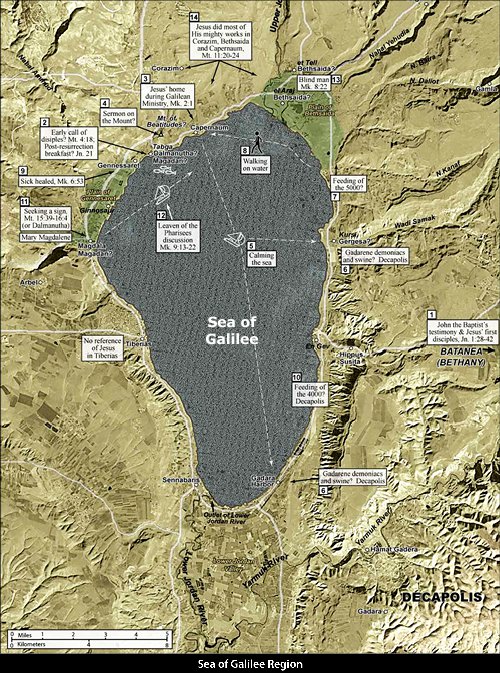
Bad Rumors About Jesus
Early in Jesus’ ministry the crowds were amazed at His teaching and news spread everywhere. In Mark 1:27-28 the crowds were wondering if He was the Messiah.
They were all amazed, so that they debated among themselves, saying, “What is this? A new teaching with authority! He commands even the unclean spirits, and they obey Him. Immediately the news about Him spread everywhere into all the surrounding district of Galilee. Mark 1:27-28 (NASB)
The gospel Matthew tells us that the crowds were incredible and they were coming from everywhere!
Jesus was going throughout all Galilee, teaching in their synagogues and proclaiming the gospel of the kingdom, and healing every kind of disease and every kind of sickness among the people. The news about Him spread throughout all Syria; and they brought to Him all who were ill, those suffering with various diseases and pains, demoniacs, epileptics, paralytics; and He healed them. Large crowds followed Him from Galilee and the Decapolis and Jerusalem and Judea and from beyond the Jordan. Matthew 4:23-25
After the demon was cast out, the mute man spoke; and the crowds were amazed, and were saying, “Nothing like this has ever been seen in Israel.” Matthew 9:33 (NASB)
The gospel of John adds,
A large crowd followed Him, because they saw the signs which He was performing on those who were sick. John 6:2 (NASB)
Luke 5:15 says the news about Jesus spread everywhere and John 6:24 says the crowds chased after Him.
According to John 2:23 and 4:1 many people were becoming His disciples. But eventually people reacted negatively to Him. Luke 4:14-30 indicates that His hometown rejected Him. They could not believe He was the Messiah referred to in Isaiah 61:1-2. Familiarity breeds contempt. They knew his family and consequently they could not accept the idea that He was the Messiah. The old adage is that a prophet is not welcome in his hometown. Some even disagreed with some things that Jesus taught. John 6:66 tells us that He had just recently lost many disciples. Did His brothers hear about that? If so, did that feed their jealousy and unbelief? Unbelief loves company. Unbelief looks for agreement and not truth. It is possible that Jesus’ brothers and sisters heard about the recent events and were motivated to be critical.
The religious leaders had already accused Jesus of not doing real miracles (Matthew 12:24). Matthew 12:46-50 reveals that most likely they had heard their accusation. John 5:18 states that the Jewish religious leaders wanted to murder Jesus and later in John 7:10, 19 we will discover that they are searching for Him to murder Him. John 7:25 reveals that the people knew this – the news was out on the street. Most likely Jesus’ brothers had heard the news too! Jesus is a fake and our leaders want to get rid of Him.
So, we should be surprised that John 7:5 says His brothers did not believe Him.
For not even His brothers were believing in Him. John 7:5 (NASB)
His brothers had heard the good and bad and remained unbelieving.
Jesus’ Response
Then Jesus responded, saying that His time had not yet come.
So Jesus *said to them, “My time is not yet here, but your time is always opportune. The world cannot hate you, but it hates Me because I testify of it, that its deeds are evil. Go up to the feast yourselves; I do not go up to this feast because My time has not yet fully come.” John 7:6-8 (NASB)
The Greek word behind “opportune” is hetoimos. The word has the meaning of being “ready or prepared.” That is, they could go at any time but He, Jesus, had restraints. He could not go since His time to die had not arrived yet.
A number of Greek manuscripts have the word “yet” inserted after the phrase “go up.” If correct, that would mean that Jesus did not go up “yet” with His brothers and would follow later. It will be clear later that He did go up. He did not want to go up with them. More than likely they would have called attention to Jesus, endangering His life.
Then He explained that the world hated Him because He told them that their deeds were evil. Later He will declare that He is the Light of the world (John 8:12). Earlier in Matthew 5:13-14 He said that we are the salt and light of the world. That is we will be in conflict with the world (2 Timothy 3:12). Our godly conduct and words are seen by the wicked world. They were offended by Jesus’ righteous conduct and words too! Therefore, they wanted to kill Him.
Before we leave these verses, notice that Jesus makes an important statement every Christian should notice. He said, “The world cannot hate you . . .” Why did He say that to His brothers? The answer is that they were not godly men. The world loved them. Does that describe you? Maybe the world “loves you” because you are not salt and light. Maybe the world does not even know that you are a Christian. Jesus’ brothers were just like the world – sinning and unbelieving. Consequently, He told them to go to the feast without Him.
Having said these things to them, He stayed in Galilee. But when His brothers had gone up to the feast, then He Himself also went up, not publicly, but as if, in secret. John 7:9-10 (NASB)
Jesus Delays His Trip
These two verses say that Jesus’ brothers “went up” to the feast. The phrase “went up” refers to Jerusalem which was at a higher elevation – 2,618 feet (798 m). So, Jesus’ brothers went up first and verse 10 says that He went up later. We have already discovered that a number of Greek manuscripts have the word “yet” inserted after “go up” in verse 8. That is, Jesus did not go up yet. He would go up at a later time. That would explain what appears to be a contradiction between verses 8 and 10. That is, Jesus told them that He would not go up with them at the time they were leaving. The timing was not correct.
One wonders if He knew of some future event that would occur in Jerusalem. If He had gone up with His brothers, at the time they were leaving would that have endangered Him? We will discover in verse 11 that the Jewish leaders are searching for Him and verse 14 tells us that Jesus arrived in the middle of the Feast of Booths – 3 or 4 days into the feast. Verse 14 supports the conclusion that Jesus intentionally delayed His trip because He knew that if He traveled with His brothers trouble would occur and His time was “not yet fully come.”
Conclusion
The gospels reveal that Jesus knew the thoughts of men (Matthew 9:4; 12:25; Luke 11:17), and that would include the thoughts of His unbelieving and ridiculing brothers. Scripture reveals that Jesus also knew the future when He told Peter to go to the Sea of Galilee and find a coin in the mouth of a fish (Matthew 17:24-27). So, Jesus timed His arrival at the great Feast of Booths, a feast that we will one day celebrate in His earthly, millennial kingdom in the future.
References:
1. Passover Feast – The Passover Feast or Seder is the first feast of the Jewish year. The Passover Seder is a celebration of Israel’s exodus from the land Egypt (Exodus 12:2-11). Leviticus 23:5 repeats the ordinance of the feast. God declared that the Passover Seder was to be celebrated on 14th day of the New Year which corresponds now to Nisan 14 in the Jewish calendar (Mar./Apr.). Since the Jewish calendar is a lunar calendar the month of Nisan starts sometime in the month of March and sometime in April. The Passover Feast celebrated a) the rescue of the Jewish people from the Egyptians and b) it was and is a picture of our rescue from sin by the death of the Messiah, Jesus Christ, on a cross. (1 Corinthians 5:7).
2. Feast of Unleavened Bread – The Feast of Unleavened Bread followed the day after the Passover Seder on Nisan 15 and lasted for seven days until Nisan 21 (Exodus 12:14-20; Leviticus 23:6-8; Matthew 26:17-20). This feast is a reminder that God delivered them out of Egypt (Ex. 12:17). The feast also speaks of Jesus’ holiness. He was the perfect lamb of God who takes away our sins.
3. Feast of First Fruits – The Feast of First Fruits occurred on Nisan 16, three days after Passover (Leviticus 23:10). The feast celebrated the giving of the first fruits of the harvest to the priests – to God. Also the feasts symbolize Jesus’ triumphant resurrection as the first of the church saints from the grave since Pentecost (1 Corinthians 15:19-26).
4. Feast of Weeks – The Feast of Weeks occurred fifty days after the start of the Feast of Unleavened Bread (Leviticus 23:16). The day of Pentecost in Acts 2 occurred on the last day of the Feast of Weeks (June/May). It symbolizes the start of the New Covenant and a change in the ministry of the Holy Spirit towards those who believe in God.
5. Feast of Trumpets – In Leviticus 23:24 the Israelites were told to blow the trumpets in celebration of this feast on the first day of the seventh month of the Jewish year. The date is Tishri 1 (Sept./Oct.). This feast celebrates Jesus Christ’s return for His bride, the church at the rapture. The rapture is associated in scripture with the blowing of a trumpet (1 Thessalonians 4:13-18 and 1 Corinthians 15:52).
6. Day of Atonement – The Day of Atonement (at-one-ment) was established in Leviticus 23:27. The date is Tishri 10 (Sept./Oct.). This feast celebrates our forgiveness of sins through faith in Jesus Christ. Today, Jews reject their Messiah. But a day is coming when Israel will repent of their sins and accept their Messiah which will occur at Jesus’ second coming just before the millennial kingdom. (Zechariah 12:10 and Romans 11:1-6, 25-36).
7. The Hebrew word that is translated as “booth” in Leviticus 23:34 comes from the Hebrew word SUKKOT which means “shelter, pavilion or covering.” The Jews call this feast Sukkot which derives its name from the Hebrew word.
8. The Jews use a calendar that is based on the time it takes the moon to orbit around the earth. Each month is 29 or 30 days long. About every two to three years they add an additional month called Adar 2 to correct the delinquent calendar.
9. “So Westcott and Hort after B W L (Neutral) while ou (not) is read by Aleph D, African Latin, Vulgate, Coptic (Western). Some of the early Greek Fathers were puzzled over the reading ouk (I go not up) as contradictory to verse 10 wherein it is stated that Jesus did go up. Almost certainly ouk (not) is correct and is not really contradictory when one notes in verse 10 that the manner of Christ’s going up is precisely the opposite of the advice of the brothers in verses 3 and 4. “Not yet” oupō is genuine before “fulfilled”, perfect passive indicative of plēroō. One may think, if he will, that Jesus changed his plans after these words, but that is unnecessary. He simply refused to fall in with his brothers’ sneering proposal for a grand Messianic procession with the caravan on the way to the feast. He will do that on the journey to the last passover.” (Robertson, A. T. Word Pictures in the New Testament. Broadman Press. 1933. John 7:8.)
